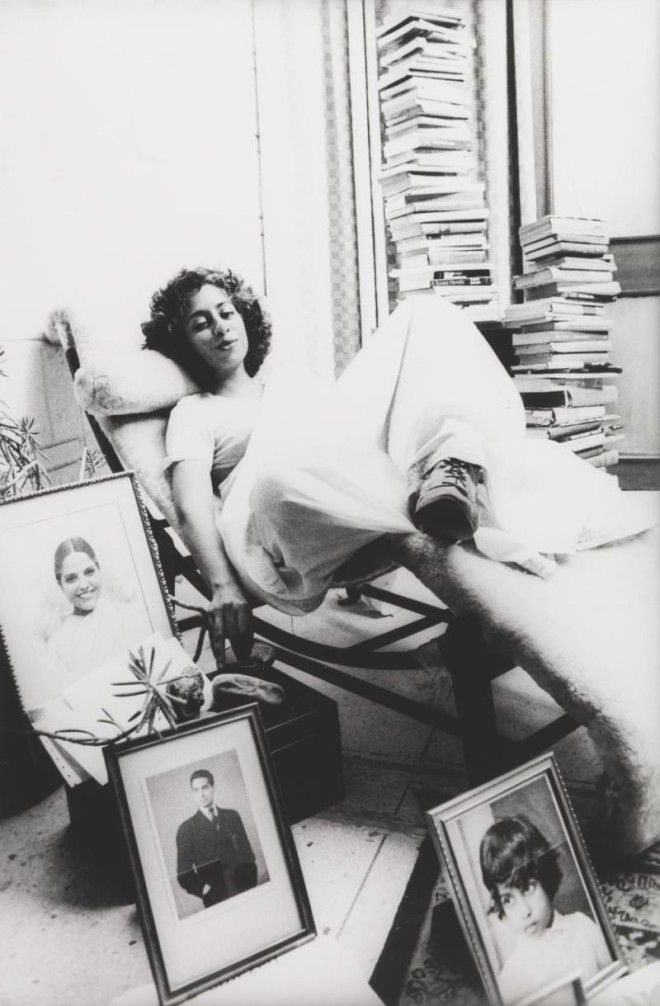The concept was born of a series of photographs that Chhacchi took during anti-rape demonstrations that happened in the early 1980s after a notorious rape case in 1978.
Ten years later, she asked herself what her role had been, as a photographer, photographing these women in their political engagement.
She found the women in her photographs, and went back to them to ask how they would like to be portrayed in a photograph.
Chhachhi calls this ‘an invitation to perform the self’. It is interesting to look at the compositions the women have chosen, surrounded by photographs of their familes, their books, or their bangles.
We can now see photographs of Indian women on protests with staged portraits of seven individuals, showing the different ways in which people might be portrayed in photography.
Sathyarani – Anti Dowry Demonstration, Delhi 1980
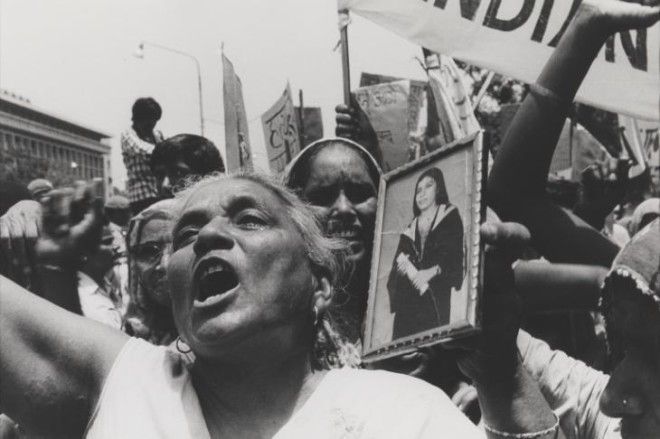
The above photo was taken by the artist in 1980 at a demonstration. She then got in touch with the woman, Sathrayani, ten years later, and, after discussing with her, took the following “Staged Portraits”. One is of her working for the cause of women’s rights in India; in the other, she is outside the Supreme Court, which she chose to highlight the achievements of the movement.
Sathyarani – Staged Portrait, Punjabi Bagh residence, Delhi 1990
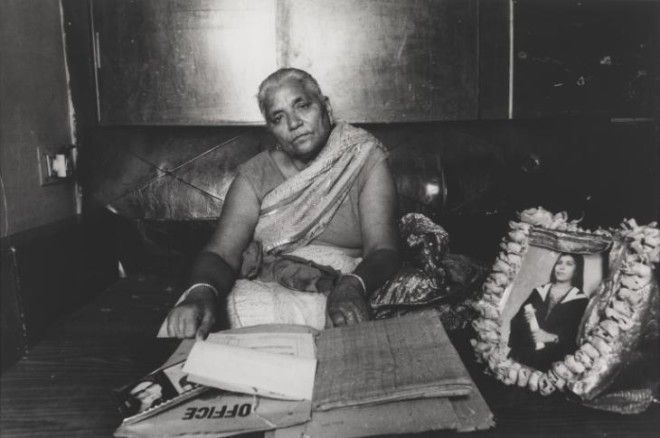
Sathyarani – Staged Portrait, Supreme Court, Delhi 1990
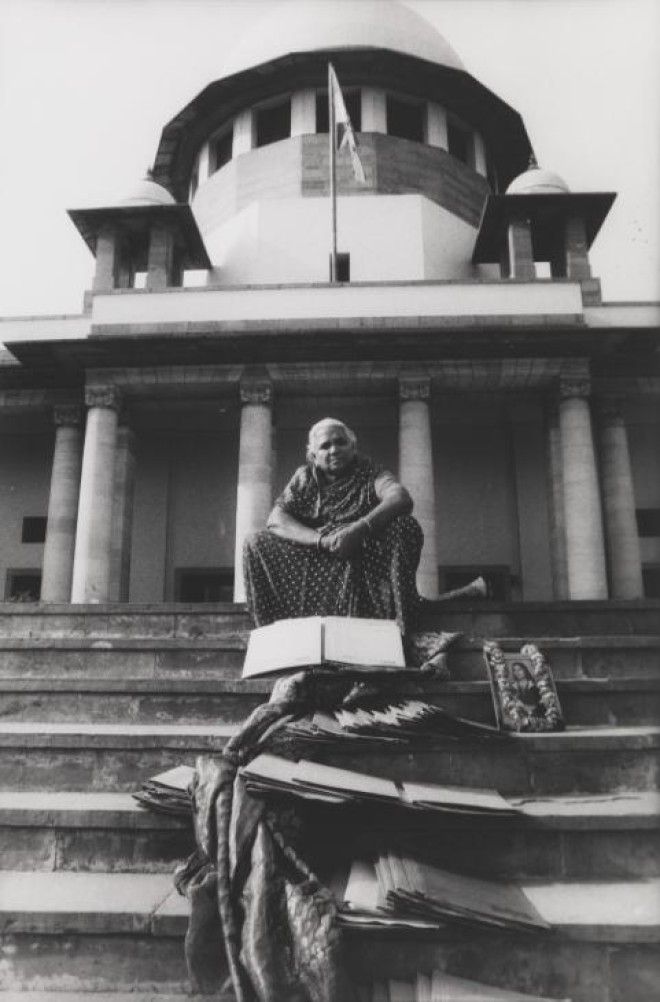
Shardabehn – Public testimony, Police Station, Delhi 1988
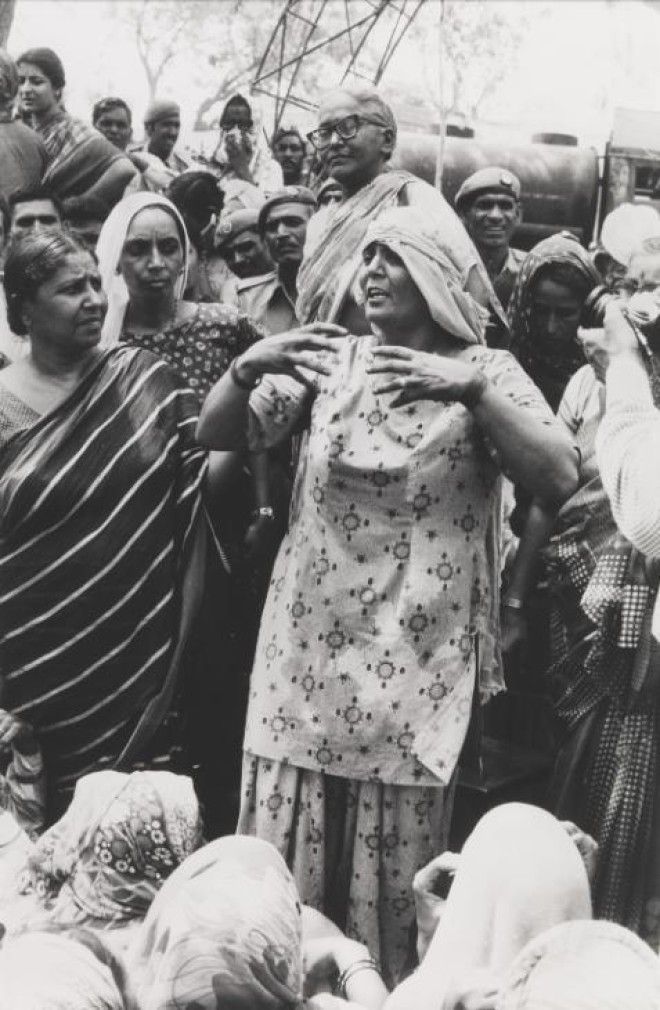
Shardabehn – Staged Portrait, DTC bus, Terminus, Delhi 1990
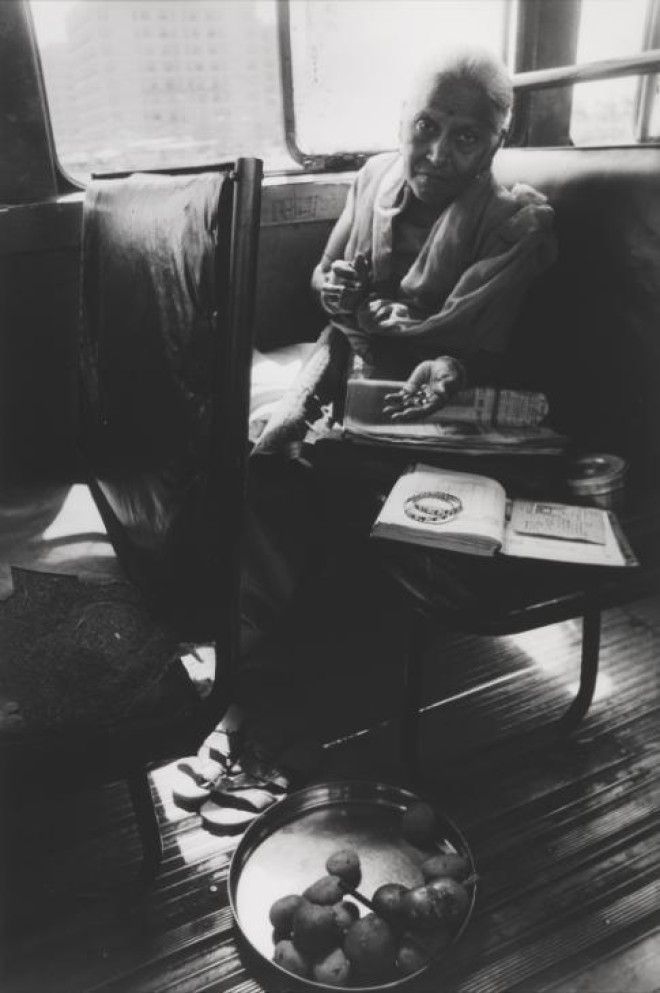
Urvashi, staged portrait, Gulmohar Park, 1991
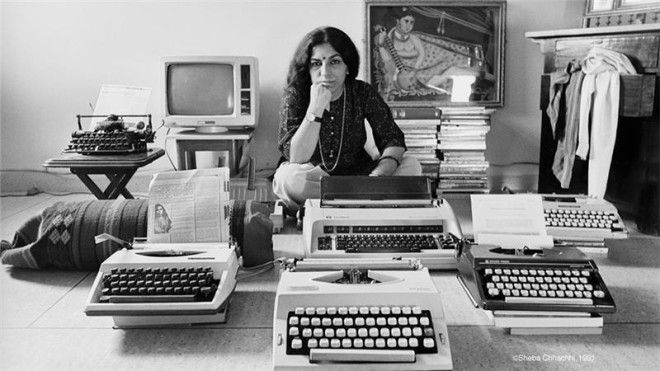
Devikripa – Staged Portrait, Seemapuri, Delhi 1990
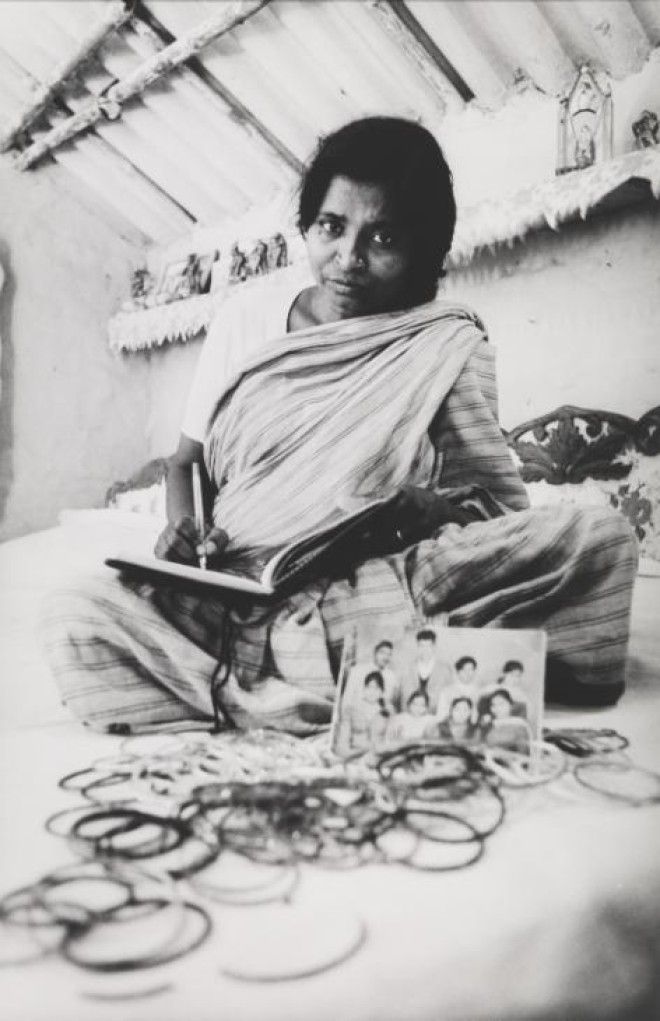
Shahjahan Apa – Staged Portrait, Nangloi, Delhi 1991
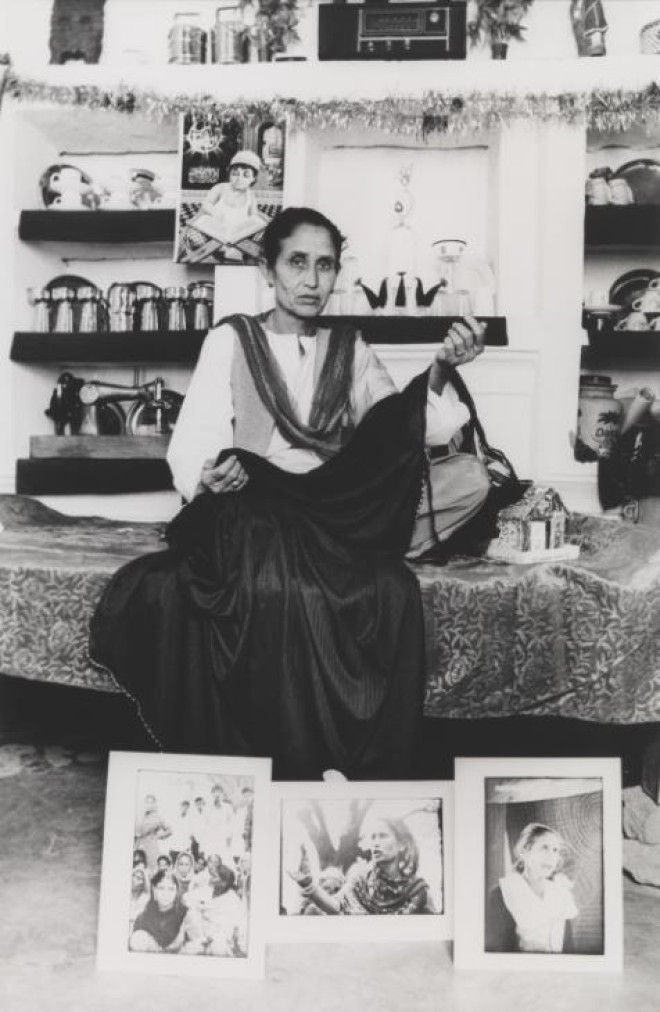
Radha – Staged Portrait, Anandlok, Delhi 1991
